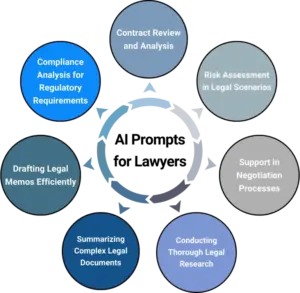Contracts govern various aspects of business relationships, outlining rights and responsibilities. An essential element in contract law is the concept of notice. Failure to provide adequate notice can have significant repercussions on contractual obligations.
Understanding what constitutes a lack of notice and its legal implications is crucial. Notice of breach, termination, or changes are common notices in contracts. An in-depth comprehension of notice periods is imperative as they protect parties within a contract. This overview sets the stage for exploring the consequences of overlooking notice requirements and the remedies available to parties.
What is ‘Lack of Notice’ in Contracts?

“Lack of notice” in contract law refers to a situation where one party fails to adequately inform the other party about important aspects of a contract. This lack of communication can lead to misunderstandings, disputes, and even legal issues.
- Clarity and Transparency: Proper notice ensures that all parties involved in a contract are aware of their rights, obligations, and any significant terms or conditions. This transparency helps in avoiding confusion and misunderstandings down the line.
- Informed Decision-Making: Parties rely on the information provided in a contract to make informed decisions about agreeing. If one party fails to provide essential details or changes to the contract, the other party may not fully understand the implications of their consent.
- Preventing Disputes: When all parties are properly informed about the terms of a contract, it reduces the likelihood of disputes arising later on. Clear communication upfront can help prevent disagreements and legal battles over the interpretation of the contract.
- Protecting Rights: Notice requirements are often specified in contracts to protect the rights of all parties involved. Businesses might need to tell people ahead of time about changes, ending something, or other important actions. This gives everyone a chance to respond or talk about it fairly.
- Legal Compliance: Not giving proper notice can cause arguments about contracts and might lead to legal problems. This could include claims for breaking the contract or using other legal actions allowed by the law.
What Constitutes Lack of Notice?
Lack of notice occurs when important information or alterations within a contract are not effectively communicated to the involved parties. This encompasses situations where parties are not informed about breaches, terminations, or amendments. Such oversight can result in disputes and legal ramifications. This highlights the significance of clear and timely communication in contractual agreements to ensure all parties are adequately informed and to prevent potential conflicts.
Related Article: Contractual Liability: A Comprehensive Guide
Types of Notices in Contract Law

Types of notices in contract law include Notice of Breach, Notice of Termination, and Notice of Changes or Amendments. A Notice of Breach is issued when a party fails to meet their contractual obligations. Notice of Termination signifies the conclusion of the contract work. Notice of Changes or Amendments outlines modifications to the original agreement.
Each type of notice serves a distinct purpose in ensuring clarity and adherence to contractual terms, safeguarding the interests of all parties involved. Understanding these variations is crucial for effective contract management and compliance with legal requirements.
Notice of Breach
Notice of breach in contract signifies a crucial communication point when one party fails to meet agreed-upon terms. It serves as a formal notification highlighting the violation and triggering potential legal actions. Failure to issue this notice can impact the ability to seek remedies for breaches.
Properly drafted notice of breach provisions specify the nature of the violation, remedies sought, and the timeframe for rectification. Under the law, this notice is fundamental in initiating discussions for resolution or escalating the matter if necessary. Timely and precise notification of breaches ensures clarity and transparency in contractual relationships.
Notice of Termination
A Notice of Termination in a contract signifies the intention to end the contractual relationship between parties. This formal communication outlines the reasons leading to termination and the effective date of termination. Failing to provide this notice correctly can result in legal disputes and financial ramifications.
Understanding the specific requirements for issuing a Notice of Termination is crucial in upholding the integrity of the contract. It is essential to follow the contractual obligations and procedures outlined in the agreement to ensure a smooth and lawful termination process. Incorporating clear termination clauses can mitigate risks associated with improper notice delivery.
Notice of Changes or Amendments
In contract law, a Notice of Changes or Amendments is a key way to communicate updates to an agreement. This notice explains any changes to the contract, making sure everyone involved knows about them.
Without this notice, misunderstandings, disputes, and breaches of contract can happen. Sending a notice of changes or updates quickly helps everyone adjust to new situations and fulfill their responsibilities, which supports a positive and helpful business relationship. Clear communication through these notices is vital for keeping contracts effective and fair.
Related Article: Breach Of Contract: Master How To Resolve Legal Disputes
Common Online Agreements

- Browsewrap: This type of agreement is shown as a hyperlink, usually found at the bottom of a website, with a message saying, “By using [this website], you agree to the Terms of Service.”
- Sign-in Wrap: In this method, a user agrees to the terms by completing an action, such as signing in to an account.
- Clickwrap: These agreements involve a button or checkbox that states, “I agree.” Users must click the button or check the box to accept the contract terms.
Online agreements can sometimes lead to a lack of notice if not presented clearly. Here are explanations for the potential issues with each type:
Browsewrap Agreements:
- Lack of Visibility: Because browsewrap agreements are usually just links at the bottom of a webpage, users might not see them. They often don’t require users to take any clear action to show they agree.
- Unclear Consent: Users might not be aware they are agreeing to terms simply by using the website. This can lead to disputes over whether the user was adequately informed.
Sign-in Wrap Agreements:
- Hidden Terms: In sign-in wrap agreements, users agree to terms by signing in or completing an action. If the terms are not presented during the sign-in process, users might miss them.
- Implicit Consent: There might be an assumption that users know they are agreeing to terms by signing in, but if this is not made explicit, it can cause confusion and disputes over consent.
Clickwrap Agreements:
- Insufficient Information: Clickwrap agreements require users to click “I agree” to accept the terms. However, if the terms are not linked or easy to find, users might not fully understand what they are agreeing to.
- Rushed Consent: Users often quickly click through these agreements without reading them, especially if the terms are lengthy or complex. This can result in users not being fully informed.
Related Article: What Is Clickwrap Agreement: An Effective Guide In 2024
Avoiding the Pitfalls of Lack of Notice
Best practices for providing notice are essential to avoid the pitfalls of lack of notice. Incorporating effective notice clauses in contracts ensures clarity and compliance. By clearly defining the method, timing, and recipients of notices, parties can prevent misunderstandings and legal disputes.
Additionally, proactive communication and regular updates on any changes help in fulfilling contractual obligations and maintaining transparency. Using a clear method for giving notice protects everyone’s interests and helps create a positive working relationship based on open communication and shared expectations.
Incorporating Effective Notice Clauses in Contracts
To ensure clarity and compliance in contract management, it is essential to include effective notice clauses. These clauses should detail how to give notice, including the method of delivery, timeframe, and who should receive it. Clearly defining notice obligations in the contract helps minimize potential disputes and misunderstandings.
Additionally, including provisions for electronic communication and acknowledgments can enhance the efficiency of notice delivery. Effective notice clauses serve as a proactive mechanism for maintaining transparency and fulfilling contractual responsibilities. Properly drafted notice clauses can significantly contribute to the smooth operation and successful execution of contractual obligations.
Best Practices for Providing Notice
To ensure effective communication in contracts, clear and timely notice is essential. Best practices for giving notice include setting clear rules for the types of notices needed, specifying how and when they should be delivered, and making sure the recipient confirms receipt. Adding notice clauses in contract law helps outline responsibilities and consequences for not following the rules.
Regular reviews and updates of notice procedures maintain compliance with legal requirements. Additionally, utilizing digital communication channels for notices enhances efficiency and documentation. By following these best practices, parties can reduce the risks of not giving proper notice and protect their contractual relationships.
Related Article: 7 Key Contract Clauses Found In Business Contracts
The Role of Digital Communication in Notice Provision

In today’s digital age, the role of digital communication in providing notice in contracts cannot be underestimated. With the widespread use of email, electronic commerce has become the norm for many business transactions. Email notices have become a common method of communication, allowing parties to exchange information and documents quickly and efficiently. However, it is important to understand the validity of email notices and the legal implications associated with their use.
Email Notices and Their Validity
Email notices have become an integral part of modern business communication. They provide a convenient and efficient way to deliver important information and updates to contract parties. However, whether email notices are valid in contracts can differ based on where you are and what the agreement says. Make sure the contract clearly says email notices are okay and both sides agree to use email for communication.
In the context of e-commerce, email notices can be considered legally binding if certain criteria are met. These rules might involve using electronic signatures, making sure you know who sent and got the email, and showing clearly that both sides agree to what’s in the email. It’s smart to talk to legal experts who know about online business laws to follow the rules and avoid problems with using email notices.
Automating Notice Delivery for Efficiency
Many businesses now use automated solutions to make sending notices faster and more efficient. They do this by using a contract management system that automatically sends out notices on time to ensure everyone gets the right information.
Automating notice delivery saves time, reduces mistakes, and helps businesses keep better records. They can easily track and monitor notices, ensuring everyone gets the information they need, and that they have a clear record of all communications.
By automating notice delivery, businesses not only make things run more smoothly but also lower the chances of disputes about missing notices. When notices are sent automatically, it shows that businesses are taking care to keep everyone informed about the contract.
Related Article: Best Electronic Signature Software: Top 7 E-Sign Tools In 2024
Legal Remedies for Lack of Notice

In cases where there has been a lack of notice in a contract, there are legal remedies available to address the issue. These remedies aim to protect the rights and interests of the parties involved and provide a means to rectify any potential harm caused by the lack of notice.
Rescission of Contract
One legal remedy for lack of notice is the rescission of the contract. Rescission allows for the cancellation or termination of the contract due to the failure to provide proper notice. This remedy essentially voids the contract from its inception, treating it as if it never existed.
If someone doesn’t get the right notice, they or a court might cancel the contract. This is called rescission. The goal of rescission is to put both parties back where they were before the contract started and to fix any problems caused by not giving the right notice.
Damages and Compensation
Damages: When someone doesn’t receive proper notice, they might seek damages. Damages are a monetary amount awarded to compensate for actual losses suffered due to not receiving the notice. These losses could include financial harm, such as losing money because they weren’t informed on time or damage to their reputation.
Compensation: This is another way to make up for losses caused by lack of notice. It involves giving money to the affected party to cover the financial harm they experienced. The amount of compensation depends on factors like how much money was lost and how severely the affected party was impacted financially.
Related Article: Legal Playbook: Essential Reasons Why Your Business Needs One
Preventive Measures and Contract Management

To avoid problems from not telling people about contract stuff, businesses should do things ahead of time and use good ways to manage contracts. This helps make sure everyone knows what they’re supposed to do in the contract and lowers the chance of arguments because someone didn’t get the right information.
One key preventive measure is the implementation of a contract management system. This system can help streamline the process of managing contracts, including the provision of notice. By centralizing contract documentation and automating notice delivery, businesses can enhance efficiency, improve record-keeping, and reduce the risk of oversight or human error.
Implementing a Contract Management System
Using a contract management system can help make sure notices in contracts work well. These systems keep all the contract papers in one place, making it easy to find and track them, including any notices. They can also send out notices automatically, making sure everyone gets the right info on time.
With a contract management system, like Volody it’s easier for people involved in the contract to talk and work together. This helps share information and updates quickly. By using these systems, businesses can make sure notices are given properly and lower the chance of arguments because someone didn’t get the right information.
Regular Audits and Reviews of Contractual Obligations
Apart from using a contract management system, businesses should regularly check and review their contract duties. These checks help find any problems or things missing in how notices are given and make sure everyone knows what they should.
Regular checks also help businesses keep up with any new laws or rules about giving notices. By checking and updating their contracts often, businesses make sure they follow the law and lower the chance of arguments because someone didn’t get the right information.
Related Article: Evaluate CLM Vendors: How To Select The Right CLM Solution
Frequently Asked Questions
What are the consequences of not providing notice?
Not telling someone about things in a contract can cause big problems. It might mean the contract can’t be enforced by law or the person affected might ask for money to cover any losses. Sometimes, not giving notice can even end the contract.
Can digital notices be considered legally binding?
If certain rules are followed, emails or other digital messages can be legally important. This might mean using electronic signatures, making sure the contract terms are easy to see, and being able to tell who sent and received the message.
Conclusion
In conclusion, in contract law, the impact of lack of notice in contracts can lead to legal implications and repercussions. Understanding what constitutes a lack of notice is crucial to avoid potential disputes. Notice periods play a significant role in protecting parties and ensuring contract compliance. By incorporating effective notice clauses, parties can prevent pitfalls and streamline communication.
Using digital communication for sending notices can make it faster and more reliable. If someone doesn’t get the right notice, legal actions might involve canceling the contract law or asking for money to cover losses. To avoid problems with notices, businesses can use contract management systems and check contracts regularly to make sure everything is clear and legal. This helps keep contracts safe and fair for everyone involved.






